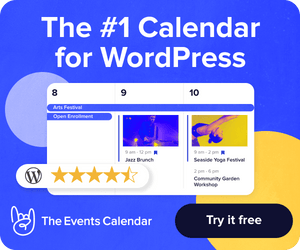Boosting WordPress site performance with autoscaling: A guide for agencies
Running a web hosting agency is an exciting challenge, especially considering all the different hosting scenarios you must manage for your clients.
Imagine your client's website has significantly fluctuating traffic. The traffic is usually within a manageable range, but the spikes are tricky to compensate for.
Mismanaging these scenarios leads to website downtime or underperformance, which leads to unhappy clients.
Autoscaling hosting can eliminate these issues for you and your clients. Read on to learn more about how this solution improves performance for your clients, eases hosting headaches for your agency, and gives you another impactful selling point.
Here’s what we’ll cover:
The basics of autoscaling
Autoscaling is a feature that allows hosting infrastructure to match the variable traffic demands of a customer’s website.
Whenever incoming requests to the website surge to the point where it could cause problems, the autoscaling hosting feature activates. This increases the resources the web server allocates to handle the requests. This way, the website remains online and accessible. When the traffic returns to normal, autoscaling reverts the servers to their standard configuration.
Imagine an event venue with overflow seating. The main seating area can take all the attendees for smaller events like a school play or a local act. However, when the main seating fills because of a really popular concert, overflow seating allows the venue to increase its capacity so that more people can enjoy the show.
If an engineer designed the overflow seating room’s doors to open automatically when the main room approaches full capacity, that would represent autoscaling.
Autoscaling is usually included in a hosting plan and doesn’t require any management from you. So, as an agency, you can assure your clients they’ll benefit from autoscaling without taking any extra steps—not even a plugin or template download.
How does autoscaling work?
Webpage visitor requests are handled by the host server’s PHP workers. These are background processes that run on the server’s CPU. Autoscaling increases and decreases the number of PHP workers according to the current load of requests.

For context, note that most hosting plans have a fixed number of PHP workers based on the type of plan and its pricing. Hosting plans catered to small websites will have fewer PHP workers than plans aimed at large businesses with more complicated websites.
The fixed number of workers means that a customer’s website may be overwhelmed when it receives many requests, usually from increased web traffic. When this happens, the website can become unresponsive because all the workers are occupied handling requests.
In contrast, a cloud server with autoscaling hosting can detect these traffic spikes and their effect on the customer’s website. To prevent the website from becoming totally unresponsive, the server will scale up performance by deploying new instances of PHP workers to manage the additional load.
This optimization is so quick and efficient that end users on the website don’t notice that autoscaling has kicked in. The server continues to monitor the website traffic; when it returns to normal, the number of PHP workers decreases accordingly.
Alternatives to autoscaling
Some hosting providers use different methods to achieve automatic scaling of server resources in response to surging web traffic.
One method is load-balancing servers. These servers host several instances of your website on the same network and use an algorithm to distribute traffic between them. When there’s a traffic surge, its impact is divided among the load balancers on the network.
Amazon Web Services (AWS) uses this method with its EC2 instances — virtual computers you can rent to run applications.
Another option that performs a similar function is content delivery networks (CDNs). A CDN caches content from your website and stores it on multiple servers in key geographic locations. It then serves this content to visitors using the closest caching server.
Cloudflare, a popular CDN provider, has data centers in over 100 countries worldwide.
The benefits autoscaling WordPress has for website owners
WordPress and WooCommerce are both PHP-based applications that pair well with autoscaling.
Agencies can provide their clients with scalable hosting packages that adapt to web traffic demands in real time. So, you’re probably thinking about what benefits and promises you can make to turn a lead into a client.
With that in mind, here are three reasons to consider a hosting provider that offers WordPress autoscaling.
Cost savings
With autoscaling, your clients won’t have to worry about changing their hosting package just to handle a spike in traffic.
Imagine an eCommerce business owner preparing for a big holiday sale. They’re expecting traffic to increase significantly on the day of the sale.
As an agency trying to manage this influx of web visitors, your only option may be to insist the owner change their hosting plan for extra resources so the website doesn’t get overwhelmed. However, the owner pushes back because they won’t need the additional resources for the rest of the year, which wastes money and server allocation.
Doing this every time a website expects a spike in visitors can get tedious in the long run. Autoscaling eliminates this by adjusting to limited periods of increased traffic.
Sustained performance
Autoscaling also ensures that page load times and responsiveness don’t degrade under a large batch of requests.
This sustained web performance — even during heavy internet traffic — is essential for businesses that depend on website visitors to generate revenue through ads or sales.
Maintaining a consistent user experience means their customers don’t get frustrated and go elsewhere. After all, studies have shown that 74% of mobile web users are unwilling to wait more than five seconds for a webpage to load.
High availability
The potential damage of a website outage is massive, ranging from loss of revenue and potential customers to reputational damage to your business. With autoscaling, you can drastically reduce the likelihood of an outage affecting your clients’ WordPress sites.
Autoscaling hosting means the server will detect symptoms of some of the leading causes of website outages, like resource overloads and distributed denial-of-service (DDoS) attacks. In these cases, autoscaling WordPress will adjust to mitigate the effects.
This buys you time for your hosting provider to work on a solution that either reduces server load or eliminates the source of the malicious attack. With the managed WordPress hosting plans from Liquid Web, customers are notified when autoscaling usage begins and at regular intervals if use continues.
How agencies benefit from offering WordPress autoscaling
The benefits of autoscaling aren’t just for the end users of hosting plans. For web hosting agencies, there are also several reasons why autoscaling will be good for your business.
Convenience
Autoscaling means that as a web hosting provider, you don’t have to worry about your customers constantly asking you to upgrade or downgrade their hosting packages whenever they experience more web traffic.
Autoscaling hosting will handle all the work of ensuring that their websites remain online and accessible so you can focus on other aspects of your hosting business, like marketing and client relations.
Simpler hosting plans
With autoscaling, you can offer more straightforward plans that adapt to multiple use cases instead of creating multiple hosting plans to meet hyper-specific scenarios.
For example, you can have a lightweight hosting plan that works for a portfolio website that doesn’t expect a lot of traffic. The same plan could also work for a mom-and-pop online store that gets traffic surges during the holiday season.
Easy to use
For all the complexity required to implement a feature like autoscaling, no one from your web hosting agency has to do anything to handle the hosting. Your web hosting services provider handles all the configuration and management for the autoscaling servers.

In fact, if you partner with a hosting provider like Liquid Web, you don’t just get access to the technical expertise required to implement autoscaling. You also get a partner that understands your business needs and ensures they’re met.
Final thoughts: How agencies can use autoscaling WordPress to boost performance
The advantages of autoscaling make it an obvious choice for clients who want reliable WordPress websites. That’s why it makes so much sense for agencies to partner with a provider that offers autoscaling as a feature.
The partner program from Liquid Web offers access to lightning-fast hosting infrastructure built with scalability, security, and performance in mind. Partners also get a dedicated account manager and transparent pricing for all services.
Whether you want to resell managed hosting services for scalable WordPress, WooCommerce, Magento, or custom web applications, you will get access to high-quality services and excellent tech support to help you achieve your goals.
Learn more about the perks of the partner program from Liquid Web to see how it fits your agency.
Related Resources

Maddy Osman
Maddy Osman is a WordPress expert, WordCamp US speaker, bestselling author, and the Founder and SEO Content Strategist at The Blogsmith. She has a B.A. in Marketing from the University of Iowa and is a WordCamp Denver organizer while also operating The Blogsmith, an SEO content agency for B2B tech companies that works with clients like HubSpot, Automattic, and Sprout Social. Learn more about The Blogsmith's process and get in touch to talk content strategy: www.TheBlogsmith.com
Keep up to date with the latest Hosting news.



